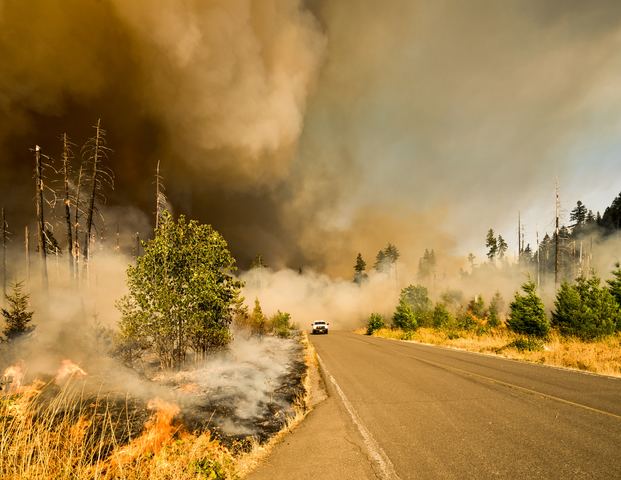
Megha Kaveri
We live at a time in which articles, pictures and videos of extreme weather events dominate the media and our memories. From flash floods and rapidly advancing cyclones to wildfires and heatwaves, the effects of climatic extremes are broad and devastating.
Extreme weather events are defined as discrete episodes of extreme weather or unusual climate conditions, often associated with deleterious impacts on society or natural systems, defined using some metric to characterize either the meteorological characteristics of the event or the consequent impacts.
While scientists have attributed a part of the current spate of extreme weather events to El Niño, a much bigger driver of these events is climate change. Additionally, scientists have also warned that in the coming years, these extreme weather events are only likely to continue and worsen.
Extreme weather events, while causing severe damage to people’s lives and property, also have lasting impacts on food production, public health, education, ecology and biodiversity, geography, and indigenous communities. To protect the planet and communities from perennial damage, it is crucial to empower decisionmakers with the right information. The evidence that will form the basis of such information is built by scientific research.
Robust science and research will contribute to improving the existing knowledge about climate and extreme weather events which, in turn, will help stakeholders to achieve climate-related SDGs.
Is the scientific community doing enough to understand extreme events?
Extreme weather events, in the past, have taken us by surprise, both in intensity and in their impacts, says Dr Gabi Hegerl, professor of climate system science at the School of Geosciences, University of Edinburgh. She adds that the surprise element in these events highlights the need to better understand what drives them.
“Methods to determine rarity of such events and identify analogues from past to future need to be further developed – we are still challenged when it comes to multi-variate extremes,” she points out.
In addition to the surprise element, extreme weather events are also harmful to society and a threat to development, especially for vulnerable people. It is hence more relevant to know how these events affect the society, economy, and human settlements, Dr Amadou Gaye, professor at the University Cheikh-Anta-Diop of Dakar (UCAD), says. “We need to better forecast them for early warning and for mitigating their impacts.”
Both the experts agree that the community needs to do more to study and forecast climate extremes better, particularly in places where capacities are low.
What is the way forward?
With the frequency of extreme weather events set to increase in the coming years, looking into possible solutions is imperative. Since the impacts of such events are both immediate and long-term, the solutions must also cover a broad base by focussing on interdisciplinary research and increased collaboration between researchers from across the world.
“Working with colleagues worldwide ensures that a topic gets robustly addressed, work gets constructively critiqued and that new methods to improve analyses are shared. This has worked excellently for detection and attribution, and is now happening for extremes,” Dr Hegerl reveals.
Global research collaboration also helps in building capacity in vulnerable climatic regions. Dr Gaye says that Africa, despite being an important region in the tropics, has much less of the information needed to face extreme events and also less research because there are only a few scientists working on these topics in or outside the continent.
“The paradox is that there is an imperative need to understand the climate in this very important part of the tropics better. We also need to develop more interactions between disciplines because the solutions are not only (based) on the development of the physical science but also on how science and technology can be used to solve problems.”
To foster higher collaboration and build capacities, funding is key.
“Extremes research is important and rapidly developing and needs funding, and doing so will save society from costly mal- or under adaptation,” says Dr Hegerl. She adds that while some funding agencies do focus on solutions and adaptation measures, neglecting physical climate science is risky. “Not connecting it with its impacts is a missed opportunity.”
Increased funding support could also enhance capacity-building in the South and underrepresented regions in the global scientific community, Dr Gaye asserts. “We need to seriously address the production and availability of data to academic communities in the South.”

